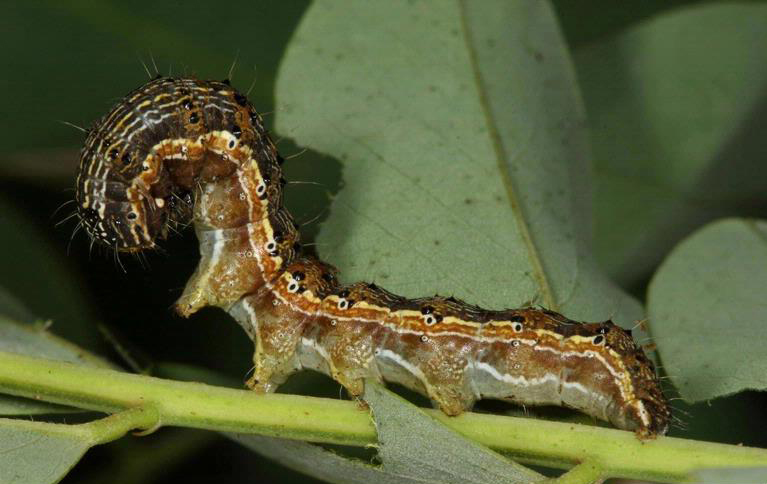Cotton crops genetically modified to kill pests may also allow other insect populations to increase as they do not require broad-spectrum insecticides.
 A new study from China, published in Nature, has found that genetically modified cotton crops that produce insecticidal proteins from the bacterium Bacillus thuringiensis (Bt) not only prevent crop damage from pests such as cotton bollworm (Helicoverpa armigera), but also boost the numbers of beneficial insects which prey on pests. This is because the modified crops do not need to be treated with broad spectrum insecticides (which kill both pest and beneficial insects). The authors also suggest that the increase in natural pest control through predator insects may have a positive spillover effect onto nearby non-modified crops.
A new study from China, published in Nature, has found that genetically modified cotton crops that produce insecticidal proteins from the bacterium Bacillus thuringiensis (Bt) not only prevent crop damage from pests such as cotton bollworm (Helicoverpa armigera), but also boost the numbers of beneficial insects which prey on pests. This is because the modified crops do not need to be treated with broad spectrum insecticides (which kill both pest and beneficial insects). The authors also suggest that the increase in natural pest control through predator insects may have a positive spillover effect onto nearby non-modified crops.
Our colleagues at the UK SMC collected the following expert commentary. Feel free to use these quotes in your reporting. If you would like to contact a New Zealand expert, please contact the SMC (04 499 5476; smc@sciencemediacentre.co.nz).
Professor Dale Sanders, Director of the John Innes Centre, said:
“This paper adds to evidence that GM crops can be eco-friendly. Through decreased use of insecticides, biodiversity is given a better chance of thriving. The research findings represent good news for everyone: sustainable agriculture can be managed through biotechnology to fulfil human requirements in terms of food yield and quality at the same time as delivering on environmental concerns such as biodiversity.”
Guy Poppy, Professor of Ecology and Principal Investigator (Insect/plant interactions), University of Southampton, said:
“Global food security will require us to sustainably intensify agriculture. Opponents of GM have argued this can’t be done through biotechnology, whereas this research challenges this view and demonstrates the wider benefits of using GM plants. By reducing the need for insecticides against caterpillars, insect biodiversity is increased and this is shown to have added benefits outside of the GM crop field. These BT crops are providing the ecosystem service of pest regulation within the Bt crop and to crops/plants in the wider environment – a true win-win which is required for the sustainable intensification of agriculture.”
Professor John Pickett from Rothamsted Research, leader of the work on a new GM wheat that repels aphids and attracts their predators and parasites, said:
“It is now nearly thirty years since the pioneering work of Jeff Schell and Marc Van Montagu led to the first transgenic plants producing insecticidal proteins from Bacillus thuringiensis (Bt).
“Many, including distinguished scientists, have looked for associated problems as the technology has been commercially developed throughout the world and, of course, we should always exercise caution in introducing new technologies. However, use of GM based Bt resistance to pest insects would not have advanced so dramatically without advantages, not least a reduction in use of insecticides against the target lepidopterous insect larvae.
“In this publication, we see clear evidence that these advantages extend to biological services at higher trophic levels and, specifically, to the predators of other pests such as aphids which are not controlled by Bt.
“This demonstration heralds the introduction of a new generation of GM crops that are engineered to manage beneficial insects, including predators and also parasitic wasps, and is the basis of our experiments, currently in the news, on transgenic wheat expressing genes responsible for producing the aphid alarm pheromone.”